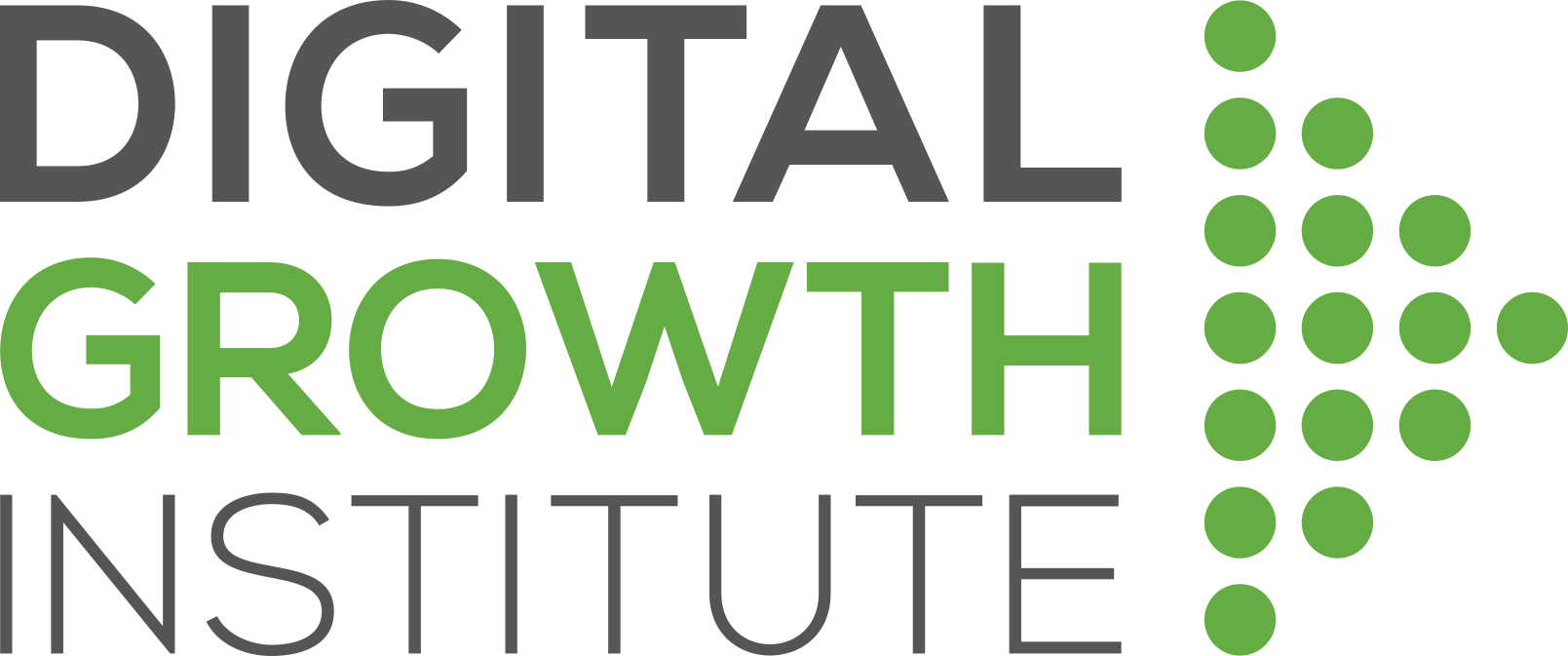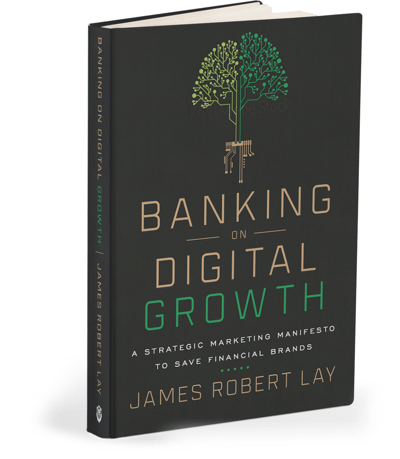In an era of AI and digital transformation, small and medium businesses (SMBs) often get lost in the shuffle of zeros and ones. In reality, every data point and every dollar symbolizes the DNA of an individual or a business, driving their financial growth and prosperity. While the world of SMB banking may seem like a minefield of loans, deposits, and confusing terminologies, there are profound opportunities for community financial brands willing to prioritize SMB owners and entrepreneurs.
John Janclaes, President of Nymbus CUSO, joined James Robert Lay on the newest Banking on Digital Growth podcast series, Heart of Growth, expressing a shared enthusiasm for this new SMB-centric approach. Nymbus CUSO is an organization dedicated to empowering its credit union owners and partners to establish digital banking quickly. This expansion, in turn, broadens reach, deepens community connections, and creates new revenue streams.
The top 3 insights from this article:
- Untapped market opportunity: Small and medium businesses (SMBs) represent a significant chunk of the economy and the lending opportunity for them alone is about 800 billion dollars. Despite this, SMBs have been largely underserved, creating a massive opportunity for financial brands and credit unions to prioritize this segment and fill the gap left by larger institutions that often focus on larger enterprises.
- Importance of empathy and member-centric approach: Credit union leaders must adopt an empathetic approach and put the member, particularly SMB owners, at the center of their business strategy. By understanding and catering to the unique needs of small businesses, credit unions can bridge the gap in the market and deliver personalized and effective solutions.
- Embrace human transformation: Transformation within community financial brands, especially credit unions, should not only focus on digital or cultural aspects but should also be fundamentally about human transformation. Leaders should shift their perspective, thinking, and feeling about serving their communities and SMBs. This human-centric approach will pave the way for growth and prosperity, supporting SMBs towards a bigger, better, and brighter future.
The Landscape of Small Business Banking
"The lending opportunity alone for SMBs is about 800 billion," John shared. Despite representing a significant chunk of the economy, SMBs have been largely underserved, creating a massive opportunity for financial brands. John indicated the crux of the problem, stating, "They're not being served very well. Why is that? They represent 49% of the market. Yet the big money centers, they rather work at the higher end, the medium to large size."
What SMBs need, John explained, is an effective service, especially for those businesses from a one-person startup to a medium-sized enterprise with a few hundred employees. The side hustles, or the gig economy, have given rise to countless SMBs, and the landscape is only growing more diverse and abundant with opportunity.
Related Content: Building Better Internal Teams with Financial Collaboration
With the advent of the internet and digital technologies, SMBs have evolved and proliferated. "The internet has exponentially multiplied opportunities to start, run, grow a business," James Robert shared, adding that the advent of AI will only magnify these opportunities further. But in order to effectively cater to these opportunities, financial brands and credit unions need to adapt, innovate, and collaborate.
And as John pointed out, "The gap between what SMBs know is possible and what they're actually experiencing is a huge opportunity for credit unions."
In a world experiencing exponential change, there's an increasing demand for financial services that genuinely understand and address the unique needs of SMBs. The future, it seems, holds the promise of exciting new possibilities for those willing to embrace the DNA behind every dollar.
The Importance of Empathy and Member-Centric Approach
James Robert and John both emphasized the need for financial brands, especially credit unions, to adopt an empathetic approach. By putting the member at the center of their business problem, these institutions can better understand and cater to the unique needs of SMBs. The focus on delivering personalized and effective solutions for small businesses will bridge the gap in the current market.
John shared how credit unions have consistently prioritized their members by understanding their household needs and catering to their individualistic demands. The focus has gradually shifted towards understanding the needs of businesses as well. This change in perspective, coupled with insights from technologists, community bankers, and credit union leaders, helped Nymbus to fine-tune its platform to meet the needs of small businesses.
Understanding the Power of 'Jobs to Be Done' and the Unique Position of Credit Unions in Serving SMBs
John explained the concept of 'jobs to be done' using the example of a contractor managing multiple jobs. For such a business owner, knowing where they stand concerning expenses, revenue, and invoices is crucial. A platform that collates all this information and presents it in a comprehensible manner fulfills this job.
The conversation moved towards the unique position of credit unions in serving SMBs compared to larger, national brands. Their local focus and deep-rooted connection with the community gives credit unions an edge, providing opportunities literally at their doorstep.
John reflected on his journey from the contractor space to being a lifelong financial brand leader, emphasizing his commitment to caring for people. In his words, leadership is a human experience, understanding people's dreams, and helping them materialize is what leadership entails. From his tenure as CEO at Disney's Credit Union to serving a quarter million people, his experiences underline the importance of putting transformation over transactions.
Related Content: Partnerships: More Than Mere Survival
An essential aspect of the dialogue was the choice of technology partners for credit unions. The criteria for choosing partners should be focused on achieving desired outcomes for the business owner rather than merely meeting transactional requirements. It's about having partners who care about delivering the best service for the business owner.
Addressing the choice between adopting a 'one size fits all' solution or a personalized platform, John expressed that customization is key for catering to small business owners. For instance, the ability to organize work according to various 'jobs to be done' on a customizable platform can significantly enhance efficiency for a business owner.
Embracing Human Transformation: Paving the Way for SMB Growth
It's clear that the path forward lies in revisiting and redefining assumptions about serving small businesses. There are options available now that can help financial brands bridge the gap and better serve SMBs. This requires going through a process of perspective shifting, feeling differently about how we approach these businesses, and caring genuinely about their growth and well-being.
Related Content: A Small Business Guide to Fintech: Insight for the Future
John advises reassessing the beliefs and assumptions about credit unions’ potential impact on small businesses. With the help of his team at Nymbus, they can guide this transformative journey. The key is to revisit the available options and to understand that in every situation, multiplied by these options, better outcomes can be achieved.
The ultimate aim is human transformation within community financial brands like credit unions. James Robert passionately advocates for this transformation, emphasizing that it's not just about digital, brand, or cultural transformation, but essentially human transformation. This transformation comes from a shift in perspective, in thinking and feeling about the way we serve our communities and small businesses.
Remember the heart of growth lies in the DNA of every loan, every dollar, and every data point.
For more about financial transformation, reach out to James Robert Lay at the Digital Growth Institute.
This article was originally published on July 24, 2023. All content © 2024 by Digital Growth Institute and may not be reproduced by any means without permission.





